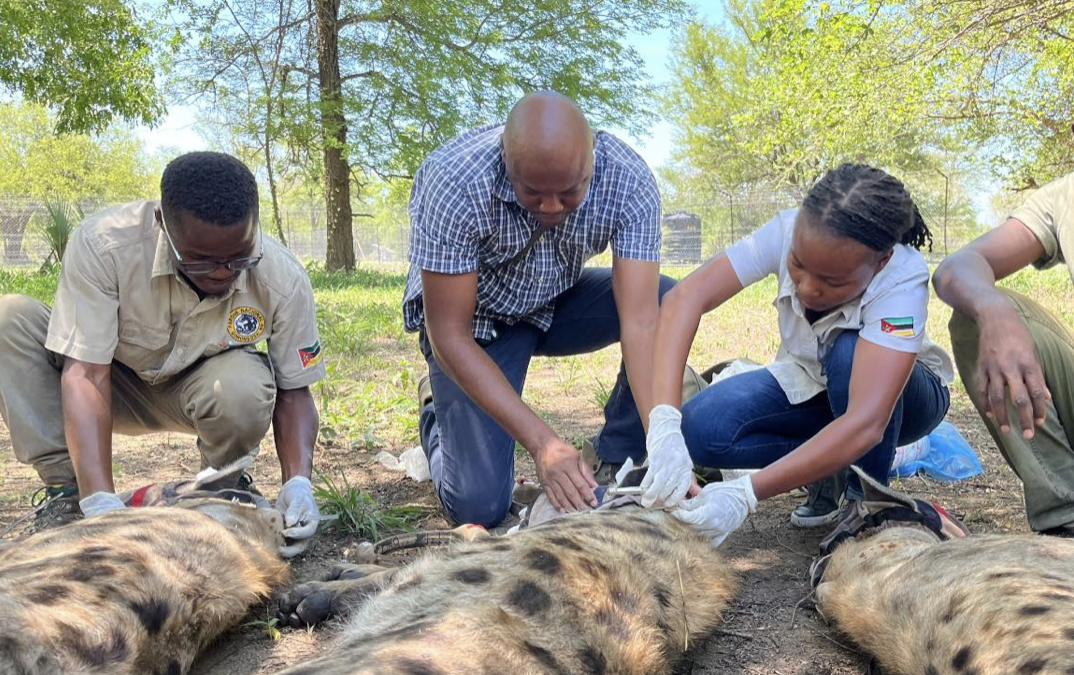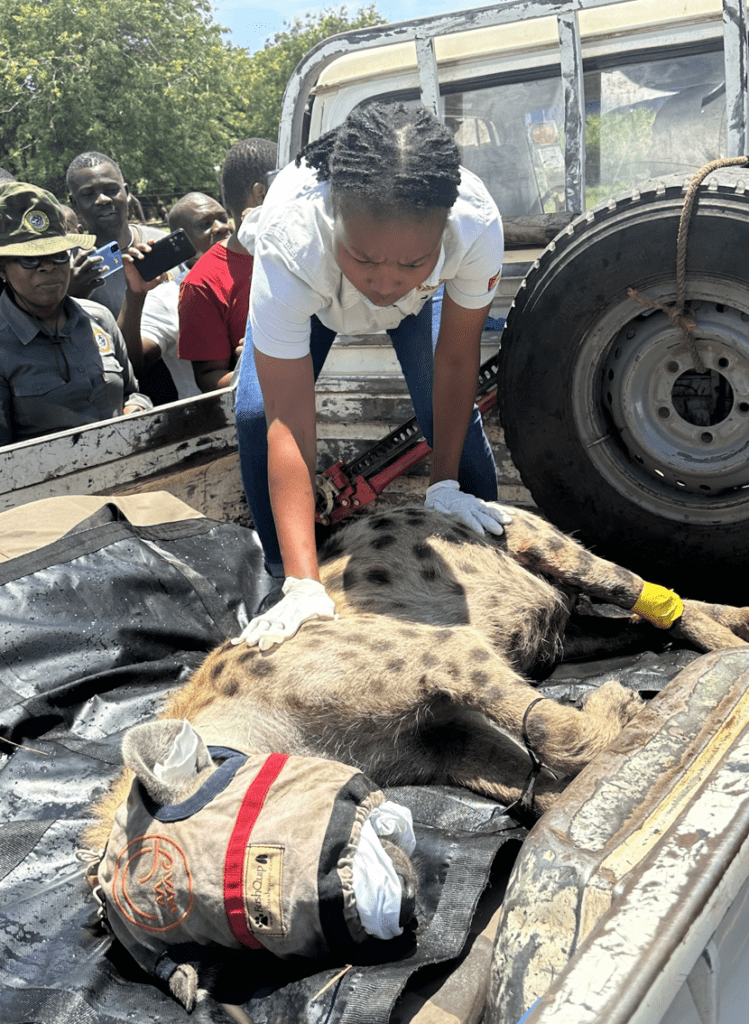by Larissa Sousa
Gorongosa National Park has long been a symbol of the rich biodiversity and natural beauty of Mozambique. As it grows its numbers of animals, the park celebrates a groundbreaking step toward restoring the park’s ecological balance by adding four hyenas from Afungi (located in northern Mozambique near Cabo Delgado) to the park, located in central Mozambique.
The reintroduction of hyenas, facilitated by Total Energies’ Mozambique LNG project, took place under the guidance of ANAC (Mozambique’s National Administration of Conservation Areas) and with the support of Mozambique Wildlife Alliance which made sure the four animals were captured and delivered safely and in good health.
According to Park officials, the reintroduction aligns with ANAC’s role in rehabilitating Mozambique’s conservation areas, and highlights the importance of collaborative efforts in protecting and revitalizing the country’s natural landscapes.
Hyenas are often misunderstood, but scientists point to a crucial role they play in maintaining ecosystem health. As both predators and scavengers, hyenas help regulate populations of other animals, prevent overgrazing, and clean up carcasses that would otherwise pollute the environment.
Fifteen more hyenas have been successfully reintroduced to Gorongosa National Park since the first four arrived in 2022, bringing the park’s population to 19.
Their return to Gorongosa is more than just an important ecological milestone—it is a step toward restoring the delicate balance of life that sustains the park’s diverse species.
This is not just about preserving nature, it’s about creating a thriving environment that can support sustainable tourism, empower local communities, and provide valuable insights into conservation science. By protecting Gorongosa’s ecosystem, we are investing in a brighter, greener future for Mozambique. And the success of this project depends on all of us and the partnerships being created. Protecting our natural heritage requires collective action—government bodies, conservationists, local communities, and every Mozambican citizen. We must work together, hand in hand, to safeguard the future of our country and its precious ecosystems.
Let us take pride in this milestone and continue working together to ensure a healthier, more sustainable Mozambique for generations to come.

